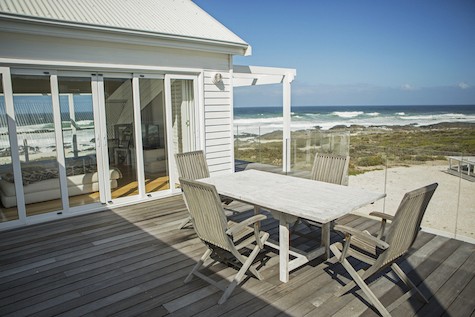ATO’s holiday home owner tax changes spur taxpayers to be ‘wary and proactive’

.
Last Wednesday (12 November), the ATO withdrew its existing ruling on rental property deductions (IT 2167) and unveiled a new draft tax ruling (TR 2025/D1) alongside draft practical compliance guidelines.
From this update, the ATO made clear it was looking to shift its compliance approach to rental property income and deductions for non-business taxpayers, apportionment of rental property deductions and the tax treatment of holiday homes used as rentals.
Tony Greco, Institute of Public Accountants (IPA) senior tax adviser, said taxpayers with rental properties also used as their holiday home would need to be aware of the changes, as certain holding costs were non-deductible.
According to Greco, an exception would apply if, at all times in the year, the taxpayers used the property mainly to produce assessable rental income. Yet the latest draft guidance challenged some of the previously accepted principles around apportionment expenses.
Under the renewed approach, non-business taxpayers with rental properties would need to demonstrate the property was being used to maximise rental income to qualify for rental deductions.
“The ATO has introduced some more factors around the concept of ‘available for use’ and the term ‘mainly to produce assessable rental income,” Greco said.
“If this guidance makes it into the final version, individuals and advisors will need to reconsider how they will treat future deductions for rental properties that are also used as holiday homes, particularly if they use such properties during periods of high demand for personal purposes.”
Greco also shared the way the ATO would assess this was by determining if the property was rented out during peak periods, which could lead to the conclusion that the holiday home was not mainly used to produce assessable income.
“Their interpretation focuses on so-called ‘peak periods’ and imputes a requirement that the taxpayer must attempt to maximise their rental income to qualify for the ‘mainly’ for income-producing use exception.”
Greco’s colleague, tax and super adviser at IPA, Letty Chen, also weighed in on the ATO’s changes and its draft guidance, outlining what it would mean for taxpayers set to be impacted by it.
Chen said that where the main use exception did apply, the taxpayer would be able to deduct ownership, usage, repairs and maintenance costs to the extent that they related to the derivation of rental income.
“The apportionment of expenses is based on the days the property is actually rented out plus the days it is unoccupied but is ‘available for rent on commercial terms’. However, there is one exception,” she said.
“Where a homeowner rents out a room in their private home on a short-term rental platform, the deductible portion of time only includes the day the room is actually tenanted. Any days it is available for rent on commercial terms but is not rented out will be treated as being days of private use.”
“So, taxpayers need to be aware that deductions relating to short term rentals of part of their private home will be more restricted than short term rentals of other properties.”
It was added that, regardless of whether the ‘main use’ exception applies, taxpayers could continue to deduct other costs directly related to deriving rental income, such as short-term rental platform fees and cleaning fees.
“Taxpayers also need to be aware that, because the ATO has not previously published these views, during this transitional period it will not take action to review expenses incurred before 1 July 2026, so long as the expense arrangement (e.g. mortgage interest, or a repair or maintenance agreement) existed prior to 12 November 2025,” Chen said.
“For existing users of short-term rental platforms, now is the time to review patterns of use of the property, including the times of year that it is made available for private use, whether it would be eligible for the ‘main use’ exception from the denial of holding cost deductions, and current methods for apportioning expenses for deductibility.”
CA ANZ Australian tax leader, Susan Franks, said that with the ATO looking to tighten its approach, holiday home owners need to be proactive.
21 November 2025
By Imogen Wilson
accountantsdaily.com.au
This includes ensuring the property was genuinely available for rent, especially in peak season, advertising widely, setting a fair market rent, avoiding restrictions that deter guests and keeping thorough records.
